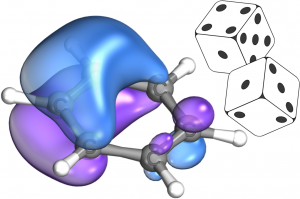 Quantum mechanics has strong connections with probability theory and statistics. Quantum problems can be formulated in terms of Feynman’s imaginary-time path integrals, which maps some quantum partition functions onto classical ones which are then amenable to statistical sampling techniques. New statistical learning approaches are emerging that aim to account for the appropriate quantum physics by virtue of their architecture. Considering these recent developments, we will bring together people interested in quantum systems and machine learning techniques. Specific topics will include topological phases, the sign problem, boundaries between classical and quantum statistics, entanglement, methods to parameterize the phase (or nodes) and amplitude of many-body wavefunctions, statistical approaches to functional approximation in DFT, and auxiliary field techniques. Generally speaking, this workshop will address new opportunities for statistical learning techniques which enable us to extend the reach and overcome the limitations of Monte Carlo and other methods as applied to the modeling and understanding of quantum systems. The goal is to highlight examples where quantum and statistical methods enhance each other.
Quantum mechanics has strong connections with probability theory and statistics. Quantum problems can be formulated in terms of Feynman’s imaginary-time path integrals, which maps some quantum partition functions onto classical ones which are then amenable to statistical sampling techniques. New statistical learning approaches are emerging that aim to account for the appropriate quantum physics by virtue of their architecture. Considering these recent developments, we will bring together people interested in quantum systems and machine learning techniques. Specific topics will include topological phases, the sign problem, boundaries between classical and quantum statistics, entanglement, methods to parameterize the phase (or nodes) and amplitude of many-body wavefunctions, statistical approaches to functional approximation in DFT, and auxiliary field techniques. Generally speaking, this workshop will address new opportunities for statistical learning techniques which enable us to extend the reach and overcome the limitations of Monte Carlo and other methods as applied to the modeling and understanding of quantum systems. The goal is to highlight examples where quantum and statistical methods enhance each other.
This workshop will include a poster session; a request for posters will be sent to registered participants in advance of the workshop.
Hybrid Workshop: While this workshop is offered in-person, participants can also register and attend talks virtually. Register here.
Kieron Burke
(University of California, Irvine (UCI))
David Ceperley
(University of Illinois at Urbana-Champaign)
Marivi Fernandez-Serra
(SUNY Stony Brook)
Anatole von Lilienfeld
(University of Basel)
Jonathan Weare
(New York University)